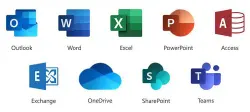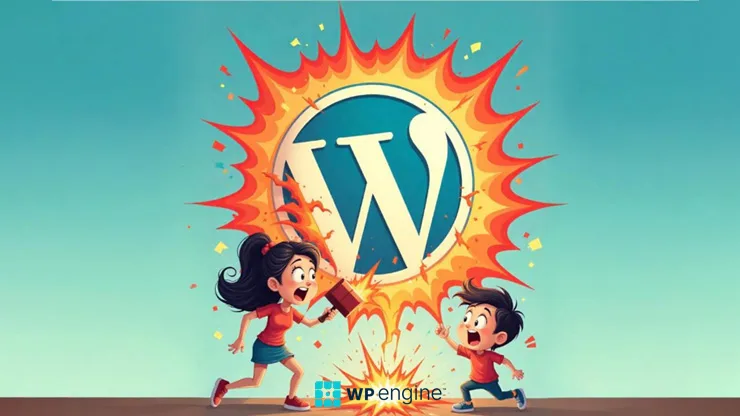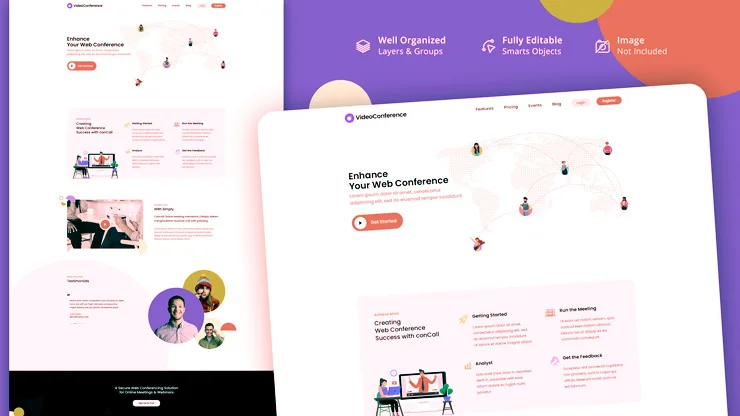In a significant and controversial move, WordPress has banned thousands of WP Engine customers, causing widespread concern among website owners and developers who rely on WP Engine for hosting and site management.
As this decision unfolds, many users are left scrambling to understand what this dispute entails, how it affects them, and what the future holds for WordPress and WP Engine partnerships.
This article will break down the key issues, explore the implications for WP Engine customers, and provide insights into what website owners should know moving forward.
What Led to the Ban? The Dispute Explained
At the heart of the dispute between WordPress and WP Engine is a conflict over platform policies, management practices, and the commercialization of WordPress services. While the exact details are still unfolding, several key factors have contributed to the fallout:
Commercialization Conflicts: WordPress, as an open-source platform, has always emphasized community-driven development and democratizing web publishing. WP Engine, as a managed hosting provider, offers premium WordPress hosting services, which sometimes come into conflict with WordPress’s ethos. There have been growing concerns about how WP Engine monetizes WordPress’s open-source software without contributing significantly to the core development of the platform.
Disagreements Over Plugin and Theme Restrictions: Another point of contention lies in how WP Engine manages plugins and themes. WP Engine has specific restrictions and guidelines for plugins that can be used on their platform, prioritizing performance and security. WordPress, however, sees this as infringing on user autonomy and goes against the open-source philosophy that allows freedom of choice.
Licensing and Software Forking Issues: Recently, WordPress has raised issues regarding WP Engine’s handling of licensing and software forking. Forking refers to the process of taking the open-source code of WordPress and modifying it to fit the needs of a specific platform or user. WordPress believes that WP Engine has crossed ethical lines in how they use and modify the software without giving back to the WordPress community, further exacerbating tensions.
These factors have led to the decision by WordPress to sever ties with WP Engine and ban thousands of customers who depend on the hosting platform.
I’ve heard from WP Engine customers that they are frustrated that WP Engine hasn’t been able to make updates, plugin directory, theme directory, and Openverse work on their sites. It saddens me that they’ve been negatively impacted by Silver Lake‘s commercial decisions.
On WP Engine’s homepage, they promise “Unmatched performance, automated updates, and bulletproof security ensure your sites thrive.”
Immediate Implications for WP Engine Customers
For users of WP Engine, this ban brings significant implications for how their websites are managed and hosted. The following are some of the most pressing concerns for those affected by this decision.
1. Loss of Direct WordPress Integration
One of the biggest impacts of this ban is the loss of direct WordPress integration for WP Engine customers. WP Engine has long provided managed WordPress hosting services, offering seamless integration with the WordPress CMS. With WordPress now severing its relationship with WP Engine, users may face technical challenges related to updates, plugin management, and access to key WordPress features.
For many customers, WP Engine served as a reliable bridge between WordPress’s open-source platform and managed hosting services. The loss of this direct integration could lead to more manual work in managing updates, security patches, and ensuring compatibility with future WordPress developments.
2. Potential Downtime and Migration Challenges
As WordPress bans WP Engine customers, many may be forced to migrate their websites to alternative hosting platforms. Website migration is often fraught with challenges, including potential downtime, data loss, and broken links or functionality. For businesses that rely on their websites for revenue generation or client engagement, even short periods of downtime could have significant financial consequences.
Furthermore, the process of moving large-scale websites—particularly those with heavy traffic or complex functionalities—can be resource-intensive. Many WP Engine customers will need to work quickly to find alternative hosting solutions while ensuring that their websites continue to operate smoothly during the transition.
3. Impact on SEO and Website Performance
Website performance and SEO are critical for many WP Engine customers, particularly for eCommerce businesses or those relying on content marketing. With WordPress no longer supporting WP Engine users, there could be a risk of diminished performance if updates and optimizations are not applied regularly.
If customers delay migrating their sites or fail to implement necessary updates post-ban, this could negatively impact page load speeds, security, and overall site health. Search engines prioritize well-performing, secure websites, meaning that any issues caused by the ban could lead to drops in search rankings and traffic.
4. Security Concerns
One of WP Engine’s core strengths has always been its focus on providing a secure hosting environment for WordPress users. With WordPress officially cutting ties with WP Engine, there may be concerns about how quickly users receive security updates or patches.
Security vulnerabilities are common targets for hackers, especially within widely-used CMS platforms like WordPress. Without immediate access to critical updates, WP Engine customers could find themselves at higher risk of data breaches, malware, and other security threats.
Long-Term Implications for WP Engine and WordPress
While the immediate impacts of this ban are felt by WP Engine customers, the long-term implications for both WP Engine and WordPress are worth considering.
1. WP Engine’s Future as a Hosting Platform
WP Engine, once a well-known managed WordPress hosting provider, faces uncertainty due to the loss of direct WordPress support. Can WP Engine continue to thrive without access to WordPress’s latest developments, updates, and community support?
WP Engine may need to pivot its services, to developing partnerships with alternative platforms. Whether the company can retain its customer base and maintain its status as a leading hosting provider will depend largely on how it handles this transition period.
2. WordPress’s Role in the Commercial Hosting Ecosystem
This dispute with WP Engine has brought to light some of the tensions between WordPress’s open-source ethos and the commercialization of its platform through hosting services. WordPress has a massive ecosystem of commercial themes, plugins, and managed hosting providers that rely on the platform, and this move could signal a shift in how WordPress approaches its relationship with these third parties.
If WordPress begins to take a stricter stance on how its platform is commercialized, other hosting providers or plugin developers could find themselves in similar disputes. WordPress may seek to reassert its control over how its software is used and monetized, which could lead to future conflicts with other businesses in the ecosystem.
3. Impact on Users and Developers
For developers and users who rely on both WordPress and WP Engine, this dispute is a wake-up call about the potential fragility of their digital infrastructure. Many users may start exploring alternative CMS options, such as Joomla, Drupal, or even custom-built solutions that provide more control over hosting and management.
Additionally, developers who build plugins and themes for the WordPress ecosystem may reconsider their long-term strategies, as WordPress’s actions against WP Engine suggest that the platform is willing to sever ties with significant commercial partners.
What Should WP Engine Customers Do Next?
If you’re a WP Engine customer affected by this ban, it’s essential to start preparing now for what comes next. Here are some steps you can take:
1. Consider Alternative Hosting Providers
There are numerous managed hosting services available that support WordPress and offer similar features to WP Engine. We at INTELLIPLANS provide robust 24/7 support for WordPress sites. If you don’t choose us, make sure to choose a provider that aligns with your needs in terms of performance, security, and customer service.
2. Backup Your Website Regularly
Before making any changes to your hosting setup, ensure that you have a full backup of your website. This includes all your files, databases, and configurations. Many hosting providers offer automated backups, but you can also use WordPress plugins like UpdraftPlus or BackupBuddy to ensure your data is secure.
3. Monitor for Updates and Security Patches
Even after moving to a new hosting provider, you’ll need to keep a close eye on WordPress core updates, plugin updates, and any security patches. Failure to do so can leave your site vulnerable to hackers and malware.
4. Consult with a Web Developer
If your website is complex or mission-critical, it may be worth consulting with a web developer to ensure a smooth transition. Developers can help mitigate the risks of migration, optimize your website for its new environment, and address any technical issues that arise during the process.
Conclusion: A Shifting Landscape for WordPress and WP Engine
The ban of thousands of WP Engine customers by WordPress marks a significant shift in the relationship between the open-source CMS and commercial hosting providers. While the long-term effects of this dispute remain uncertain, WP Engine customers must act quickly to minimize disruption to their websites and maintain their online presence.
This situation also serves as a broader lesson for all WordPress users: as the platform continues to evolve, staying informed and adaptable will be key to thriving in a rapidly changing digital landscape.










